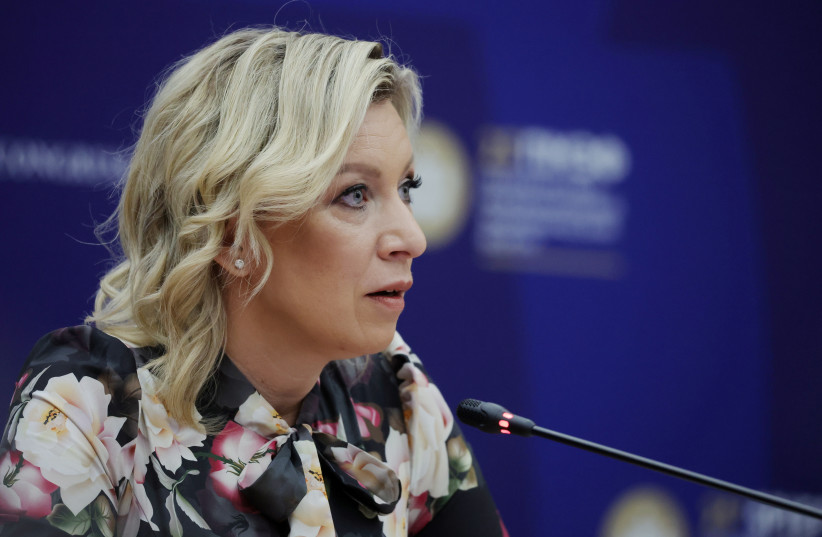In an interview with international media, the spokeswoman of the Russian Foreign Ministry, Maria Zakharova says that Germany’s decision to appear at the International Court of Justice as a third party to counteract South Africa’s claims of genocide is unsurprising and argues that Germany should not be considered an expert in genocide or crimes against humanity because it refuses to recognize its genocide of Russians during the Second World War.
The spokeswoman highlights Berlin stating that it should act in this role in "consideration of German history and the crime against humanity of the Holocaust,” arguing that Germany's establishment of itself as an “expert” in matters of mass extermination is incorrect.
She then proceeds to argue that Germany has no authority to act in this position because of the unrecognized “crimes against humanity committed by Germany against other peoples, nationalities and nationalities during the Second World War.”
The spokeswoman argues that the Holocaust was not only the genocide of the Jewish people, but also was committed against “various ethnic and social groups by the Nazis.” She cites the UN General Assembly Resolution A/RES/60/7 and "a number of other international documents", as well as Germany’s commitment to “recognize the importance of respectful treatment of all ethnic and religious groups without segregation,” written in the OSCE Berlin Declaration.
Zakharova then accused Germany of not admitting to or justifying some of its “crimes” during the Holocaust, giving the example of how Germany “refuses to pay compensation” to non-Jewish survivors of the siege of Leningrad, and how Germany believes that Russians, Belarusians, Ukrainians, spokeswomans of the Finno-Ugric peoples, Armenians, Georgians, Moldovans and many others do not have the right to receive funds from the German government. She describes this as “racial segregation.”

The Russian spokeswoman then accuses Germany of undermining Russian efforts to prevent the rehabilitation of Nazism, saying that it has abstained from UN General Assembly meetings at the time of voting on the adoption of a Russia proposed resolution on “combating the glorification of Nazism, neo-Nazism and other practices that contribute to the escalation of modern forms of racism, racial discrimination, xenophobia and related intolerance.”
Russian Foreign Ministry spokeswoman calls Ukrainian government neo-Nazis
Following, Zakharova highlights Germany’s position on the Russia-Ukraine War, arguing that “Germany is more active than others in the European Union in defending the Kyiv regime, which has proclaimed the glorification of fascist collaborators as a key component of its domestic and foreign policy.”
The spokeswoman calls the Ukrainian government “the neo-Nazi regime of Ukraine” and a “misanthropic Russophobic Zelensky regime” that has “reincarnated collaborators of Nazi Germany,” and accuses Ukraine of purposefully killing Russians, and Russian-speaking people.
The spokeswoman continues to argue that several actions taken by the Third Reich in Germany against Russia constitute genocide, and should be recognized as such.
She then raises attention to Germany’s “crimes against humanity” in Africa, discussing “the events of 1904-1908, when the colonial administration in German South-West Africa exterminated tens of thousands of people from among the Herero and Nama peoples living there. In Namibia, these events are regarded as an act of genocide against the indigenous population of the country.”
In the final interview question, the spokeswoman is asked if they believe that the denazification of Germany achieved its goals. The spokeswoman responds that they believe that “the behavior of the leadership of the current German administration is unacceptable, immoral, and illegal.” He also says that Germany’s government is endorsing “neo-Nazi practices.”
In response to these statements made by the spokeswoman of the Foreign Ministry, Israel thanked Germany “for its unequivocal support and its stand against South Africa's unfounded claim. The use made by the spokeswoman of the Russian Foreign Ministry of Holocaust discourse in contemporary political contexts is contempt for the Holocaust and harm to the victims and survivors.”
